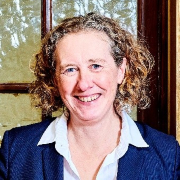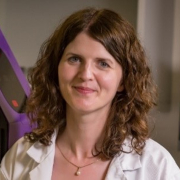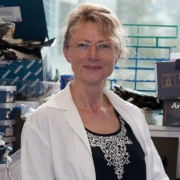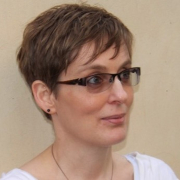What is the EDI Expert Advisory Group (EAG)?
The purpose of the Equality, Diversity and Inclusion (EDI) Expert Advisory Group is to provide expert external advice and guidance to BBSRC on its approach to improving EDI in the bioscience research and innovation community. This group was established in January 2022 and was approved for continuation by People and Talent Strategy Advisory Panel in January 2023.
The BBSRC EDI Advisory Group consists of 12 members.
Across the membership of the EDI EAG, the following knowledge, expertise and skills is represented:
- demonstrable understanding and interest in EDI or research culture issues, including one or more of the following:
- knowledge of EDI challenges across the research and innovation community and how this relates to BBSRC’s role in improving EDI in the biosciences
- knowledge of EDI challenges within a particular region, sector (for example, academia, industry or other research institute), or research area (for example, one of BBSRC’s strategic research priority areas)
- knowledge of EDI challenges for a particular career stage (for example, postgraduate students, early career researchers or research leaders)
- in-depth knowledge of UKRI-BBSRC systems, processes or strategic development (for example, through participation in a BBSRC panel or committee)
What does the EDI EAG do?
The EDI EAG provides external oversight of BBSRC’s EDI workplan in the context of the UKRI EDI strategy and BBSRC strategic delivery plan, including:
- acting as a ‘critical friend’ in challenging BBSRC’s work
- acting as advocates for EDI in the biosciences and for BBSRC work in this area
- ensuring that BBSRC activities align with UKRI and BBSRC priorities in this area and support a balanced portfolio of activities which have the greatest impact for the BBSRC community
- identify and prioritise the key EDI issues in the biosciences and provide advice on what BBSRC could do to help address these challenges in the short and longer terms
- provide oversight on BBSRC’s EDI evidence base to identify areas for intervention or further investigation, to include for example:
- advising on ongoing or future evidence requirements
- identifying any specific EDI issues that have arisen as a result of the coronavirus pandemic, and how these could be resolved in the short and longer terms
- advising on the role of existing BBSRC investment mechanisms in improving EDI or gathering evidence, for example; fellowships, studentships, new researchers, strategic longer and larger grants, institute strategic programmes, and others
Our members
Learn more about our equality, diversity and inclusion external advisory group members:

 Candy’s main research interests lie in understanding ‘what makes animals tick’, and particularly how they learn about food and decide what to eat, and as importantly, what not to eat. Candy discovers these decision-making processes through observing animal behaviour, as well as applying what she knows to more pressing issues such as improving animal welfare.
Candy’s main research interests lie in understanding ‘what makes animals tick’, and particularly how they learn about food and decide what to eat, and as importantly, what not to eat. Candy discovers these decision-making processes through observing animal behaviour, as well as applying what she knows to more pressing issues such as improving animal welfare. Anastasia Callaghan is Professor of Biochemistry and Molecular Biophysics at the University of Portsmouth and Director of a biotechnology spin-out.
Anastasia Callaghan is Professor of Biochemistry and Molecular Biophysics at the University of Portsmouth and Director of a biotechnology spin-out. Professor Gail Preston leads a research group that studies bacterial plant diseases at the University of Oxford and is the Director of the BBSRC-funded Oxford Interdisciplinary Bioscience Doctoral Training Partnership. She is also the Deputy Director of the MPLS Doctoral Training Centre, with more than 12 years of experience as a doctoral programme director.
Professor Gail Preston leads a research group that studies bacterial plant diseases at the University of Oxford and is the Director of the BBSRC-funded Oxford Interdisciplinary Bioscience Doctoral Training Partnership. She is also the Deputy Director of the MPLS Doctoral Training Centre, with more than 12 years of experience as a doctoral programme director. Jenny Pople is a senior industrial research scientist at Unilever research and development with 19 years’ experience in the beauty and personal care sector, with specialist expertise in human biology and skin science. She has been industrial co-supervisor for BBSRC Industrial Cooperative Awards in Science and Technology (CASE) PhD studentships since 2015 with several UK academic partners.
Jenny Pople is a senior industrial research scientist at Unilever research and development with 19 years’ experience in the beauty and personal care sector, with specialist expertise in human biology and skin science. She has been industrial co-supervisor for BBSRC Industrial Cooperative Awards in Science and Technology (CASE) PhD studentships since 2015 with several UK academic partners. Jon Lane is a Professor of Cell Biology in the School of Biochemistry at the University of Bristol.
Jon Lane is a Professor of Cell Biology in the School of Biochemistry at the University of Bristol. Karen Halliday is Chair of Systems Physiology at the University of Edinburgh.
Karen Halliday is Chair of Systems Physiology at the University of Edinburgh. Malcolm Skingle has a BSc in Pharmacology/Biochemistry and a PhD in Neuropharmacology.
Malcolm Skingle has a BSc in Pharmacology/Biochemistry and a PhD in Neuropharmacology. Matthew Ryan is Research Lead of Biological Resources at CABI and project manager of the BBSRC-funded UK Crop Microbiome Biobank.
Matthew Ryan is Research Lead of Biological Resources at CABI and project manager of the BBSRC-funded UK Crop Microbiome Biobank. Paula Booth is currently Daniell Professor of Chemistry and Co-Director of the Centre for Physical Science of Life at King’s College, London, UK.
Paula Booth is currently Daniell Professor of Chemistry and Co-Director of the Centre for Physical Science of Life at King’s College, London, UK. QueeLim Ch’ng is a Reader of Systems Biology and Neuroscience in the Centre for Developmental Neurobiology at King’s College London.
QueeLim Ch’ng is a Reader of Systems Biology and Neuroscience in the Centre for Developmental Neurobiology at King’s College London. Raheela N Khan is a Professor of Cellular Physiology at the University of Nottingham and heads a research team studying the physiology and pathophysiology of pregnancy and cancer.
Raheela N Khan is a Professor of Cellular Physiology at the University of Nottingham and heads a research team studying the physiology and pathophysiology of pregnancy and cancer. Narender Ramnani is Professor of Neuroscience at Royal Holloway, University of London.
Narender Ramnani is Professor of Neuroscience at Royal Holloway, University of London.